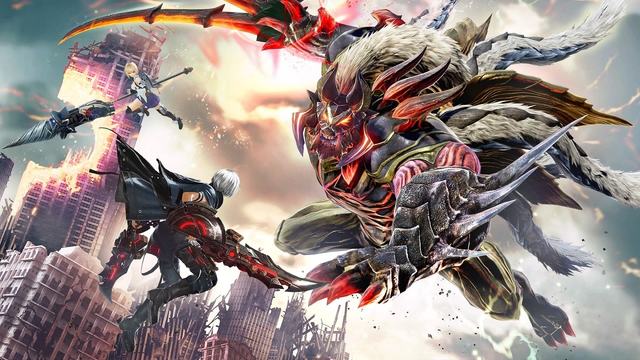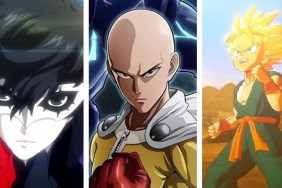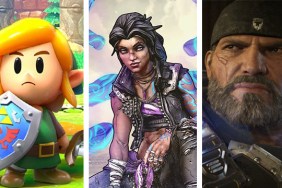God Eater is the anime-stylized equivalent of Capcom’s Monster Hunter franchise. Since it debuted on PlayStation Portable in 2010, the series has spawned several sequels, remakes, and revamps on handhelds and consoles. With the God Eater 3 Switch version coming out on July 12, now is a great time to rediscover what makes this series special. So here’s everything curious God Eater Switch players should know about the popular series.
God Eater Switch Primer | The world
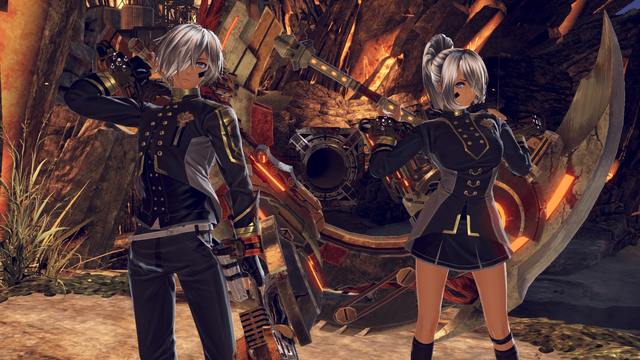
The God Eater universe is set in a distant future where most of humanity has been wiped out by a powerful race of creatures called the Aragami. God Eaters are super soldiers tasked with taking down these monsters on behalf of an organization named Fenrir, the likes of which is constantly creating new technology to help humanity survive. The weapons that God Eaters use in battle, God Arcs, are unique to each character and crafted with Aragami flesh and man-made machinery.
Though new God Eaters appear in every iteration, the franchise usually takes place in an area known as the Far East. The fields that players hunt in range from sprawling plains littered with tornadoes to dilapidated power plants teeming with vegetation. It’s fascinating to imagine how groups of people managed to survive in the temples and underground cities that fans explore, though it’s also hard to ignore the air of sadness that permeates each abandoned location.
Newcomers who feel like they may be lost with God Eater 3‘s story should rest assured knowing that each game in the series features its own self-contained narrative. Popular characters from early titles make appearances, but usually don’t bring up past events. It can be argued that the series as a whole is largely gameplay-focused.
God Eater Switch Primer | The Aragami
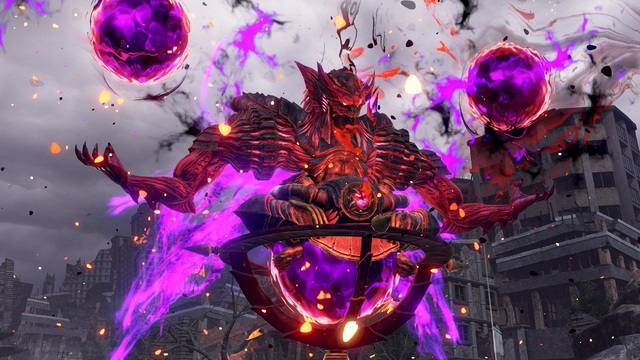
It makes sense that the term Aragami translates to “violent god” in Japanese, as these creatures are responsible for bringing humanity to the brink of extinction and will stop at nothing to devour everything that exists on Earth. Aragami can rapidly morph their attributes by consuming material in their immediate surroundings, thus allowing them to take advantage of natural phenomenon like ice or magma. To make matters worse, the monsters can only be defeated by extracting their cores with God Arcs.
Different categories of Aragami include Psions, Deusphages, Arc Aberrants, Ash Aragami, and the Fallen. Each harbors a unique set of special abilities, attacks, and weaknesses that players need to memorize if they hope to avoid being eaten. Man-made threats like Wild Arc Soldiers exist in God Eater, though most aren’t as menacing as the voracious deities that litter this universe.
God Eater Switch Primer | The gameplay
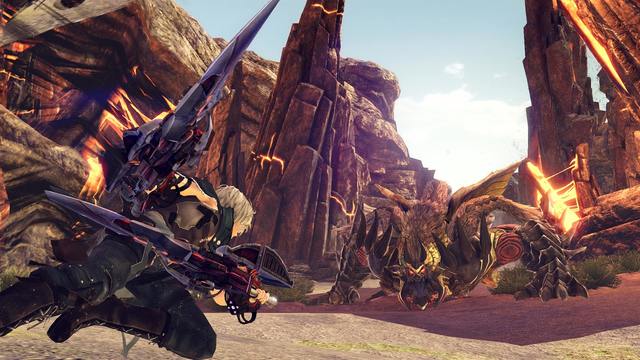
Similarly to Monster Hunter, God Eater has players track down Aragami so that they may harvest their cores or body parts and upgrade their God Arcs. These weapons can switch between Blade, Gun, and Shield forms in God Eater 2: Rage Burst and its successors, allowing fans to chop down foes up close or shoot them from a distance. God Arcs can also consume Aragami parts in the midst of battle in order to trigger Burst Mode, which temporarily boosts a God Eater’s attack power, speed, and gunshot damage.
Players are typically accompanied by AI characters during each mission and can capitalize on each team member’s unique combat perks via an Engage System. Through this mechanic, recovery rates, speed boosts, and status immunities are shared in battle. It’s fun to take advantage of the feature when playing with a group of friends, as it encourages fans to work together. The Engage System is also useful during assault missions, which task parties of eight to topple a ridiculously powerful Aragami.
The God Eater franchise’s other RPG elements include character, God Arc, and move set customization, mission modifiers, and additional rewards upon excellent completion of a hunt. Though fans could get by mastering the game’s hack and slash combat alone, learning which upgrades compliment one’s play style certainly makes for a more satisfying experience.
God Eater Switch Primer | How God Eater 3 fits in
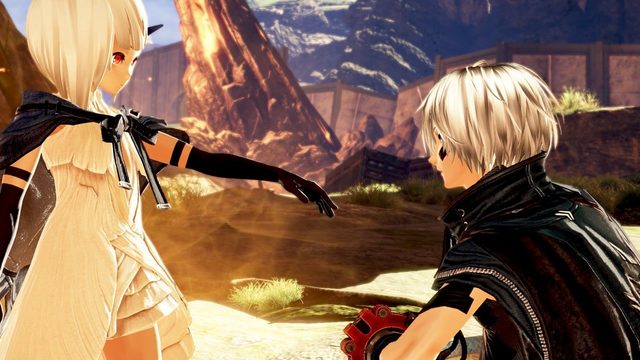
God Eater 3 is set during a time when a phenomenon known as the Ashlands threatens the civilization that Fenrir has established in the Far East. A new type of super soldier called the Adaptive God Eater is born and tasked with finding resources to sustain humanity’s future. As the group faces wave after wave of Aragami, its place in the world is brought into question.
Though the game was built from the ground up for home consoles, it maintains a lot of the series’ core gameplay elements. That’s not to say that it doesn’t include a number of new features including never-before-seen Aragami, plug-ins that improve damage during Burst mode, Acceleration Triggers that grant buffs when certain conditions are met in battle, and a few reworks to ranged combat. Dual wielding also makes its debut in the sequel, allowing fans to look noticeably badass when they’re slicing up mean-looking monsters on the battlefield.
God Eater 3‘s fun cooperative multiplayer functionality and addictive Aragami-hunting gameplay may make it a hit among Switch owners this summer. While curious fans wait for the title to launch on Nintendo’s platform, they could play some of the series’ previous entries on PlayStation hardware and PC or watch the anime to get a taste of what fantastic carnage awaits them soon. It won’t be long before they come face-to-face with an Ash Aragami and realize just how unforgiving a God Eater game can be.
